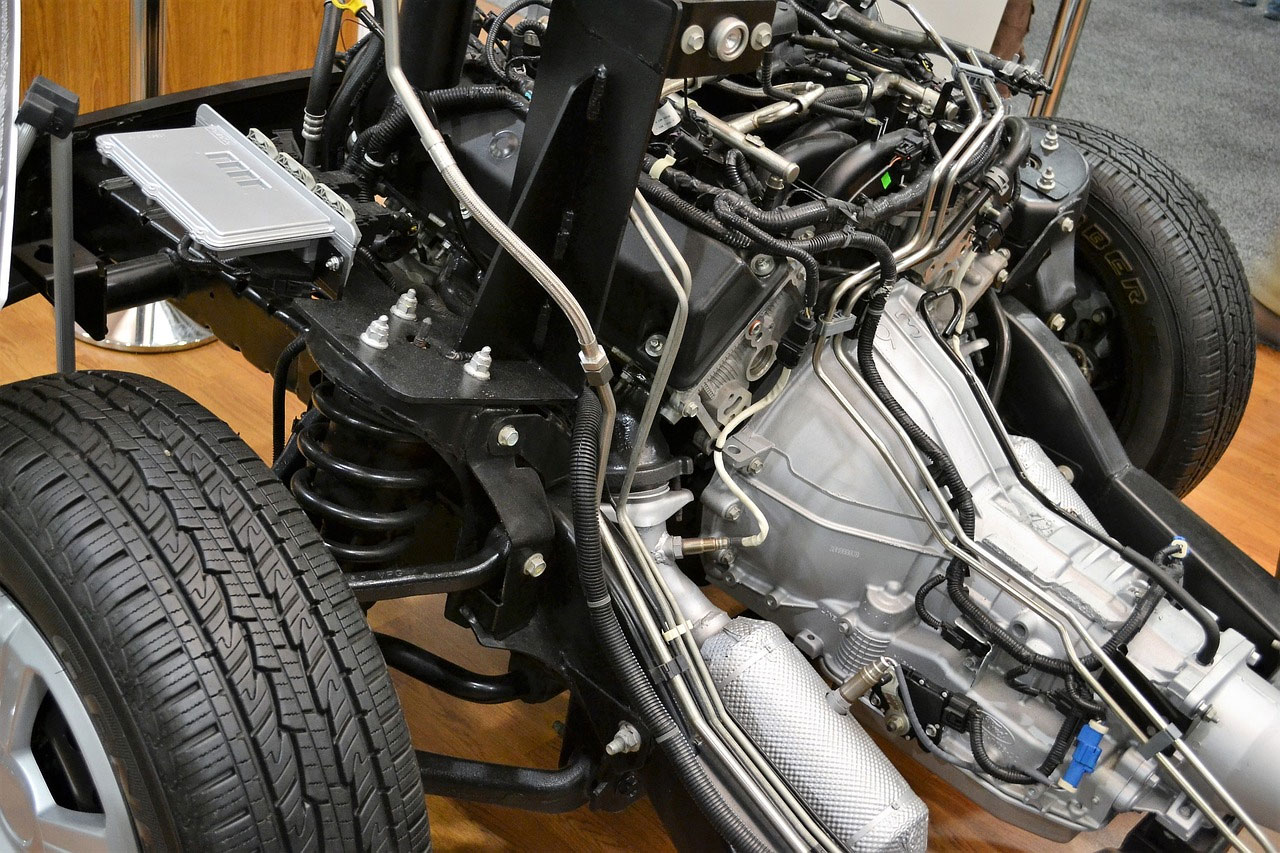Cars Thumping Noise When Accelerating?

There are two possible explanations for a thumping noise coming from the front of your car when you accelerate: either the starter motor mount or transmission mount is to blame. Though they may seem insignificant, transmission mounts have a significant impact on performance and the overall quality of your driving experience.

Why does my car clunk when I press the gas?
If you notice a clunking noise coming from your car, there are a few possible explanations. If the noise occurs when you hit the gas pedal or shift gears, it's likely that a U-joint or CV joint is beginning to fail. Another possibility is that an engine mount is worn out and causing the noise when shifting into forward or reverse.
Diagnosing car thumping noise
What does it mean when your car thumps?
If you hear a thumping noise coming from your vehicle's exhaust, it could be an indication that the exhaust system is damaged. Thumping is usually caused by a hole or crack in the muffler, which allows air to escape and causes the thumping sound. If your exhaust isn't producing a thumping sound, but is louder than usual, it could also be an indication of damage to the system.
Why is my front end thumping?
A front end clunking noise going over bumps is most often caused by damaged control arms or suspension struts. Often, this kind of damage happens if you use your vehicle for off-roading adventures—or there are a lot of potholes on your daily commute. If you notice this noise, take your car in for an inspection as soon as possible. A mechanic will be able to tell if the control arms or suspension struts need to be replaced.
How is front end clunk diagnosed? A front end clunk is diagnosed by first checking the suspension and steering components for any looseness. If everything is tight, then the problem is most likely with the shocks or struts. Furthermore, a front end clunk can also be caused by a worn out CV joint or wheel bearing. The best way to diagnose the problem is to have a certified mechanic, such as one from YourMechanic, inspect your car and diagnose the source of the noise.
What is a banging noise when accelerating?
Engine knocking is the term for what most drivers experience frequently (detonation). When one type of fuel in a cylinder ignites before another, the engine will knock. When the engine is running normally, the spark plug initiates combustion and burns all of the fuel in the cylinder, controlling the explosion. Engine knock indicates that some fuel has begun to spontaneously ignite before being ignited by the spark plug. Over time, this could harm your engine.
Can I drive my car if its clunking?
If you hear a knocking noise coming from your engine, the best thing to do is stop driving and have it checked out as soon as possible. The knocking could be caused by something as simple as a poor fuel mix. If the fuel and air mixture is not correct, it can cause multiple ignition points, which will create the knocking noise.
When driving a thumping sound can be a warning?
If you are driving and hear a thumping noise, it may be a warning that a tire is about to blowout. If this happens, it is important to stay calm and take the following steps: safely pull off the road and check your tires, if one has blown out, hold the steering wheel tightly and slowly take your foot off the gas pedal, if your vehicle skids handle it as you would on ice or snow. By following these steps, you can help avoid a serious accident.

List of possible cause, car thumping noise when accelerating
1. Wheel Balance Issues
If your vehicle has wheel balance issues, it will vibrate while driving. The vibration will be most noticeable at higher speeds, and you may feel it in the steering wheel, seat, or floorboard. Wheel balance issues can be caused by a number of things, including uneven tire wear, bent wheels, or mismatched tires.
2. Tyre Pressure Issues
If your car has tyre pressure issues, you will need to take it to a mechanic. Tyre pressure issues can be caused by a number of things, including a puncture, leaks or simply incorrect inflation. If you have a puncture, the tyre will need to be repaired or replaced. If there are leaks, they will need to be fixed. Incorrect inflation can usually be fixed by simply re-inflating the tyres to the correct pressure.
3. Loose Suspension Components
What does suspension problems sound like? If you're driving and you hear an unusual noise coming from under the car, it's probably an indication of a suspension problem. The noise might be a knocking, creaking, or clanking sound. In extreme cases, the car might not want to drive in a straight line without you constantly making adjustments with the steering wheel.
4. Worn or Faulty Shock Absorbers
If your car's shock absorbers are worn or faulty, it can negatively affect the handling of your vehicle. Worn shocks can cause the car to bounce around on rough roads, and they can also cause the tires to lose contact with the road surface. This can lead to a loss of control and increased stopping distances. Faulty shocks can also cause premature wear on other suspension components, so it's important to have them checked and replaced if necessary.
5. Worn Brake Pads or Rotors
If your vehicle is vibrating when you brake, it may be a sign that your brake pads or rotors are worn. Your brake pads are the part of your brakes that make contact with the rotors to create friction and stop your vehicle. If they are worn, they may not be creating enough friction to stop your vehicle effectively. Additionally, worn rotors can also cause vibrations. If you notice either of these issues, it's important to have your brakes checked by a professional as soon as possible to avoid any accidents.
6. Loose or Damaged Wheel Bearings
If you hear a grinding noise coming from your car, it could be a sign that your wheel bearings are loose or damaged. Wheel bearings help keep the wheels on your car in place, so if they're not working properly, it can cause all sorts of problems. If you think you might have a problem with your wheel bearings, it's best to get it checked out by a mechanic as soon as possible.
7. Exhaust System Problems
The exhaust system is vital to a car's performance. It helps to improve fuel economy and reduce emissions. However, it can also be a source of problems. Exhaust system problems can lead to decreased performance, increased fuel consumption, and damage to the engine. If you notice any changes in your car's performance, it is important to have the exhaust system checked by a mechanic. Exhaust system problems can be caused by a variety of factors, including leaks, blockages, or damage.





